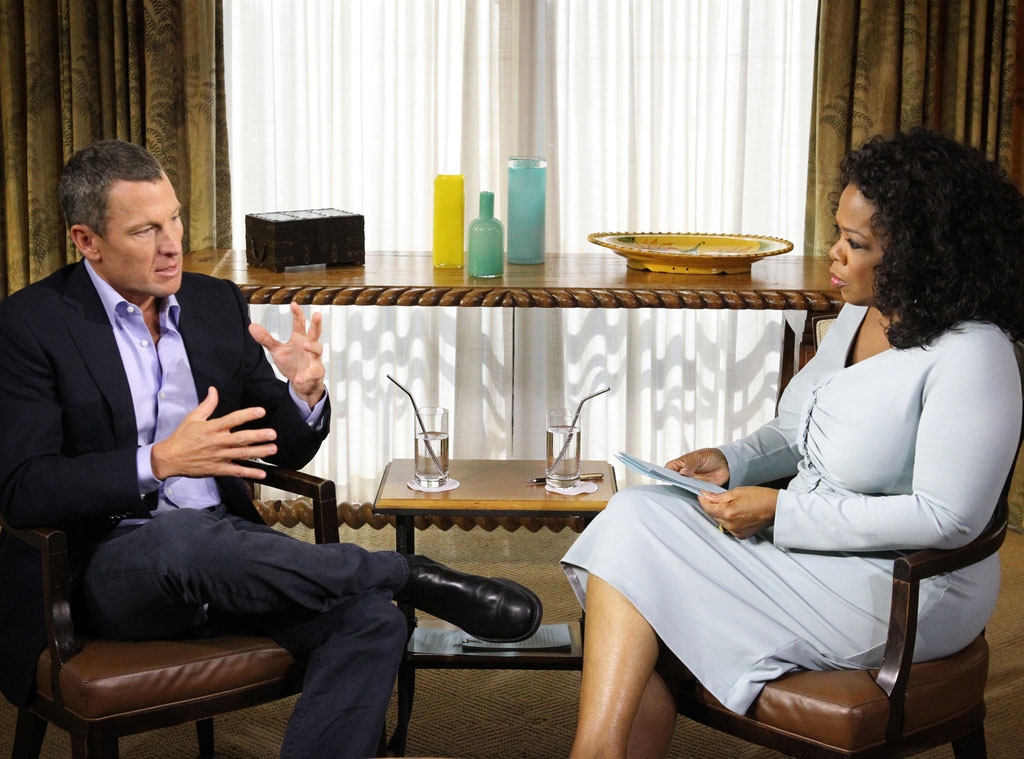 OWN
OWNLance Armstrong's day of reckoning has finally arrived.
In part one of his highly anticipated interview with Oprah Winfrey, the disgraced cyclist not only admitted to doping, but opened up about the details of how it all went down during a segment of the media mogul's Oprah's Next Chapter, which aired Thursday.
After vehemently denying for years that he used performance-enhancing drugs during his cycling career, the former athlete agreed there would be "no holds barred" as he discussed the scandal with Winfrey.
And there were none.
When asked if he had ever taken banned substances to enhance his cycling performances, used blood doping to enhance those performances, or use banned substances during his seven straight Tour de France wins, Armstrong answered "yes."
"Do you think it was it possible to win seven times in a row without it," Winfrey asked Armstrong. "No," Armstrong replied.
Armstrong said his use of performance-enhancing drugs was nothing new. It began early on in his career.
"There were cortisones and then the EPO [erythropoietin] generation began…in the mid ‘90s," Armstrong revealed, later saying, "I viewed [taking drugs] as very simple--oxygen boosting drugs that were incredibly beneficial for performance sports. And that's all you needed. My cocktail was only EPO—not a lot, transfusions and testosterone."
So, why admit to the drug use after denying it for so long (13 years to be exact, according to Winfrey)?
"I don't know if I have a great answer," Armstrong said. "I will start my answer by saying this is too late…and that's my fault. I view this situation as one big lie that I repeated many times."
Armstrong said he wasn't afraid of getting caught while he was doping because "there was no testing for EPO and no testing out of competition" at that time.
"So you're not gonna get caught ‘cause you're clean at the races," Armstrong said. "It was a question of scheduling."
That changed for Armstrong when the UCI began using its "biological passport" in 2008, which detects doping violations over time.
He went on to say that although he was accused of it, he did not "dope" in 2009, when he placed third in the Tour de France, or in 2010.
"The last time I crossed the line was 2005," Armstrong said.
Speaking of accusations, Armstrong also said he didn't bully anyone on his team into doping, but that he risked it all himself by doing drugs because of his "ruthless desire to win at all costs."
"That served me well on the bike, served me well with [my battle with cancer], but the level that it went to was a flaw," Armstrong said.
Armstrong, who not only denied accusations of doping, but went on to sue many people for making those accusations, admitted he had been wrong for taking it so far.
"I'll spend the rest of my life apologizing and trying to earn back trust from people," Armstrong continued.
The final part of Armstrong's interview airs Friday at 9 p.m. ET on OWN.